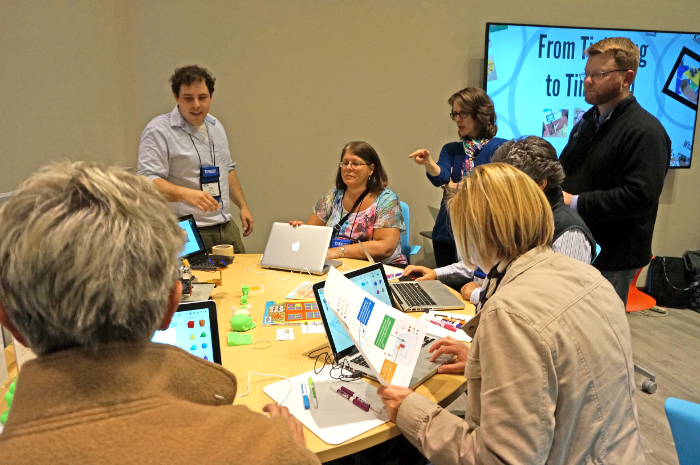
Jacy Edelman, Kreg Hanning & Sue Cusack
October 21, 2015
Kinetic Sculpture:
|
Stop Motion:
|
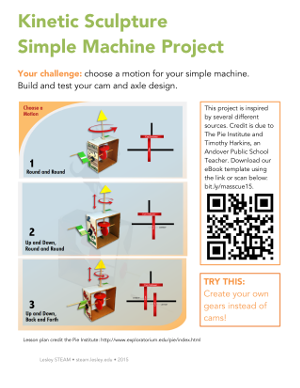 |
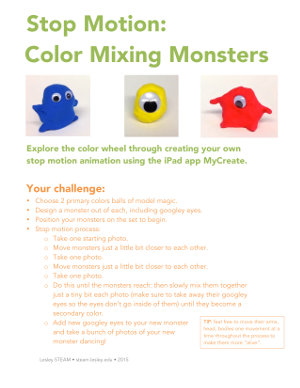 |
Tinkercad: Dream Houses |
Draw bots |
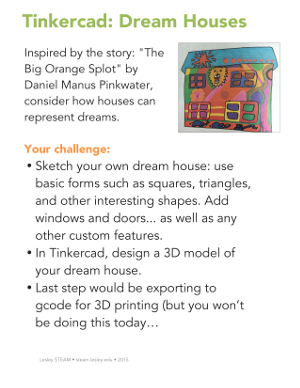 |
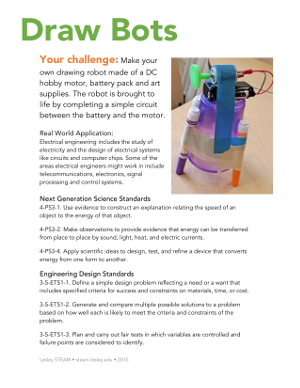 |
Over 130 junior kindergarten – 6th grade students from the Summer Compass Program came through the Lesley Makerspace to experience hands on robotics, electronics, and engineering projects.
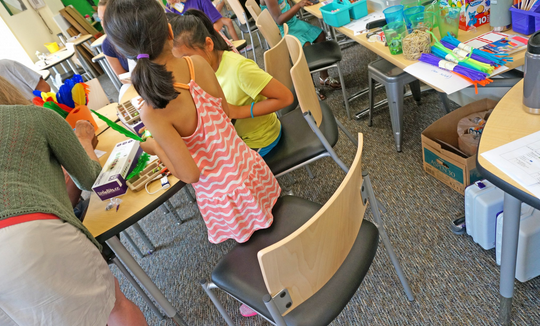
On May 21st, over 150 Cambridge Public Schools (CPS) families and students converged in the Kennedy-Longfellow School (K-Lo) dining hall for an evening of creative robotics, prizes, and pizza. K-Lo hosted the first ever CPSD “Robotics Playground” with the idea of sharing out classroom robotics and engineering curricula. K-Lo was in good company — with teacher and student teams from the high school, Amigos, Fletcher Maynard, King Open, Tobin, 8 middle school volunteers from Putnam Ave, and Ingrid Gustafson, who represents all of the middle schools.

We had a host of special guests, including Superintendent Young and Assistant Superintend MaryAnn MacDonald, two school committee representatives, Fred Fantini and Patty Nolan, Terry Gist, President of the Cambridge Education Association, a representative from the City Councilor Nadeem Mazen’s office, reps from the Best Practices group in the STEAM initiative being coordinated through City Hall, a representative from the Cambridge Expanded Learning STEAM Network, the director of the Elementary Education program at Lesley University, and 4 parent representatives from the KLO Site Council.
Fi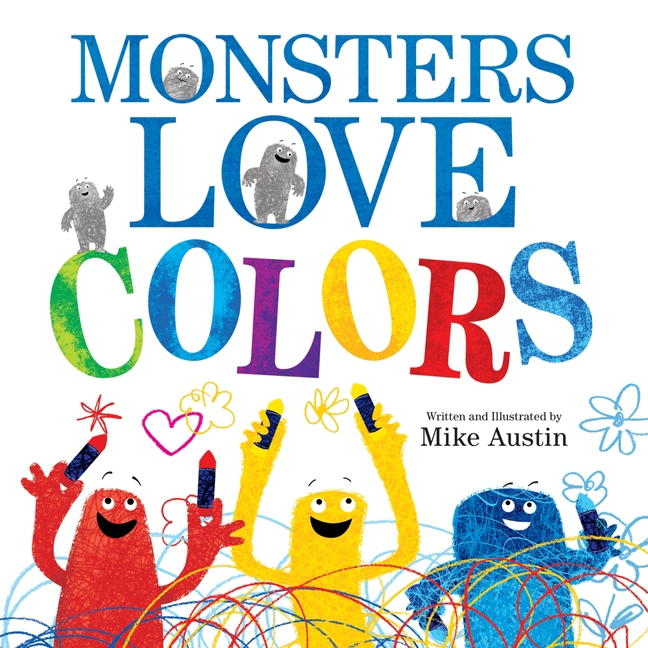 rst grade students explored color mixing in art class by creating their own stop motion animation videos. The stop motion center was just one of six centers set up by K-Lo art teacher Amanda Kilton. The other centers included an overhead projector color transparencies, stamp mixing, tissue paper collage, painting and a color-based book browsing table with titles like “Monsters Love Colors.”
rst grade students explored color mixing in art class by creating their own stop motion animation videos. The stop motion center was just one of six centers set up by K-Lo art teacher Amanda Kilton. The other centers included an overhead projector color transparencies, stamp mixing, tissue paper collage, painting and a color-based book browsing table with titles like “Monsters Love Colors.”
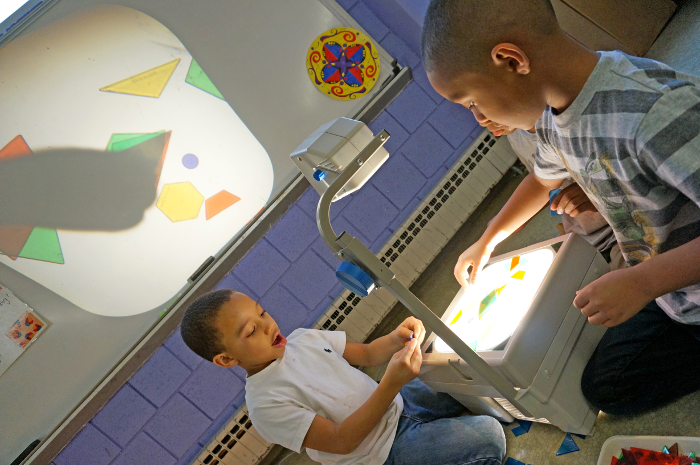
The Kinetic Sculpture/Simple Machines has been a project-based collaboration between the 5th grade classroom teachers, the art teacher, the Library/Media Specialist and the technology teacher. The project began by the classroom teacher introducing the concept of simple machines during homeroom science blocks. Students documented and explained every day simple machines found in the kitchen: a can opener, knife, pizza cutter, etc. Teachers also set up an engineer “gallery walk” where students walked around the school makerspace and read about over 20 types of engineers. They were then tasked with finding two types of engineering they were interested in and explaining their interest.
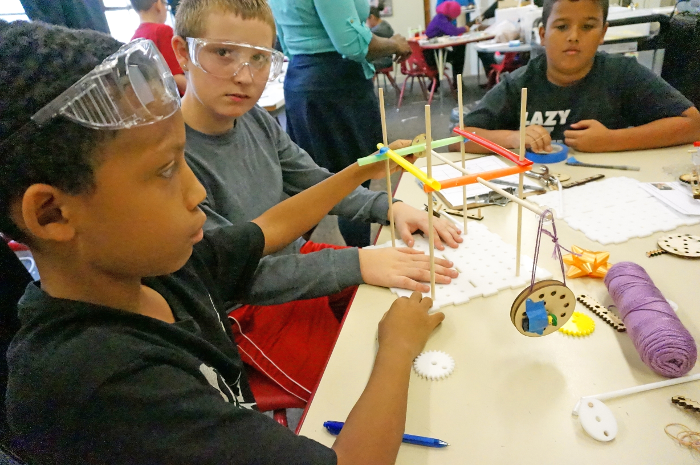
On May 30th, 14 members of the Lesley New Teacher Community (NTC) gathered in the new Lesley Makerspace to experience hands-on STEAM activities. The group included new teachers from a range of grades and disciplines who were eager to discover these new tools for themselves.
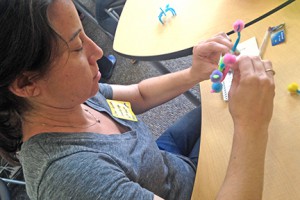
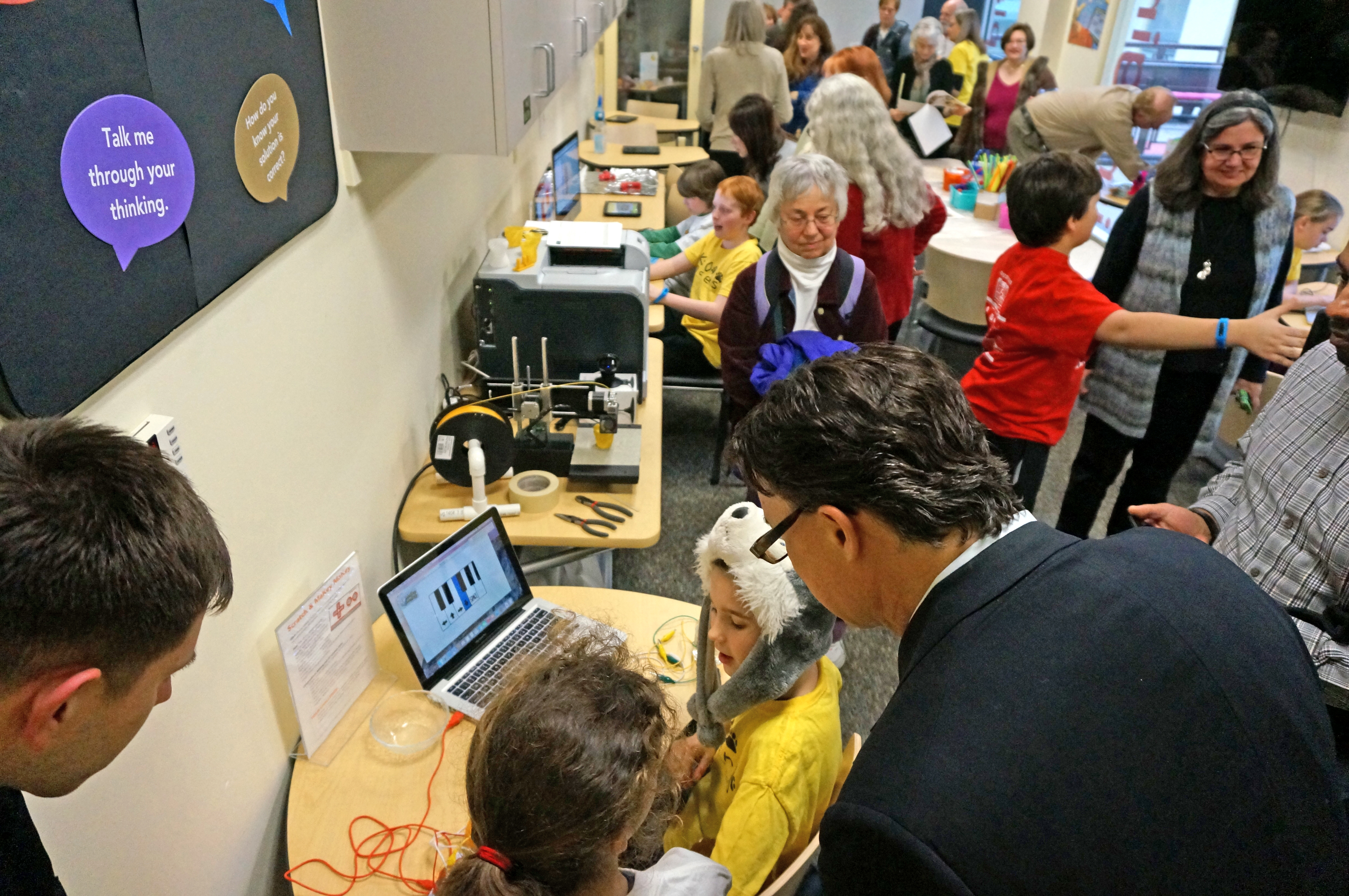
The buzz was palpable as Lesley faculty, staff, community members and friends wove their way through the newly launched makerspace. Housed on the second floor of University Hall at Lesley, the makerspace features a wide variety of teaching and learning tools rooted in the maker mentality.
Continue reading Lesley makerspace launch ignites hearts & minds
March 10, 2015
Kinetic Sculpture |
Squishy Circuits |
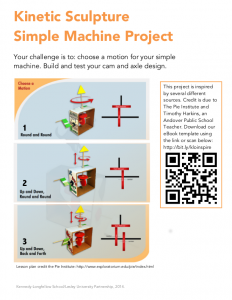 |
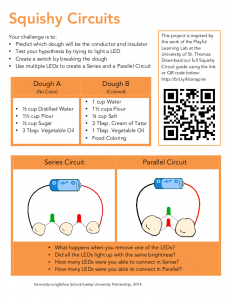 |
| Lesson Plan Instructions eBook Template |
Lesson Plan |
Scratch and Maps |
Hickory Dickory Dock |
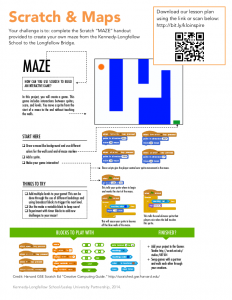 |
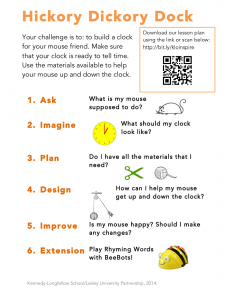 |
| Lesson Plan | Lesson Plan |
Above: The 4th grade students became programming mentors, helping to guide Kindergarteners through exploring Scratch Jr.
Students at the Kennedy-Longfellow School didn’t just spent one hour coding for the National Hour of Code Week: they spent 31 hours of collective coding! All grade levels, including preschool and Special Start students up through 5th grade, were invited into the school makerspace during the week to participate in hands-on coding activities. Following our model of student-centered learning, we set up various centers, depending on the age range, and let the students free to explore!
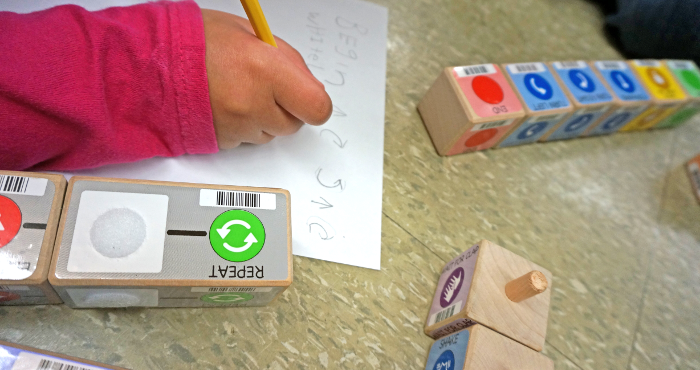
This fall, K-Lo launched robotics in the primary grades in partnership with Tufts University’s Eliot Pearson Department of Child Study and Human Development. The school piloted the KIBO, a robot designed with support from the National Science Foundation, with one kindergarten, first, and second grade class. During the seven week project, students learned about programming, sensors, and the engineering design process with ties to readers theatre in the kindergarten, and earth science in the first and second grades.
The Lesley team will continue to support the other primary classrooms in learning about the KIBO and how it can be used to deepen understanding and engagement in other curricular activities. To see more about the KIBO, you can see the company discussion of this innovation, and stay tuned to hear more from K-Lo students about their own experiences with robotics!
Check out a couple videos of students presenting their final projects: